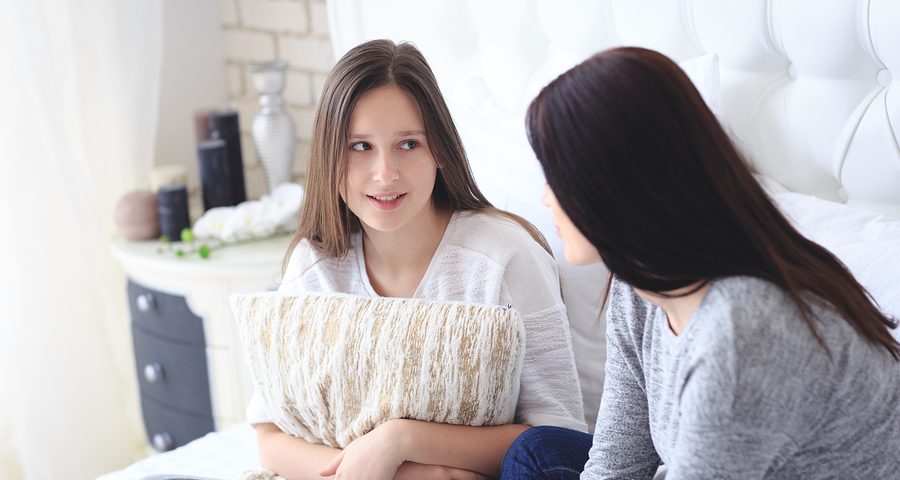Welcome to Womanhood: Helping Your Teen Cope with Common Menstrual Complaints

While menstrual complaints vary from woman to woman, for a teenage girl the onset of menstruation may be the first time she’s dealing with the cramping, backaches, headaches, tenderness in her breasts and more that is commonly associated period pains.
On top of that, she’s adjusting to hormone fluctuation – making this time in her life literally a rough period.
As we said before, the level of pain varies greatly from woman to woman, so don’t assume her pain will show up in the same way or to the same degree as yours did when you were her age.
Here are some common period pains that you may hear your daughter complain about:
- Cramps in her lumbar, sciatica, pelvic floor, or groin areas.
- Nausea, fatigue, fainting, or dizziness.
- Intense headaches and potentially migraines.
- Vomiting and/or diarrhea
Pain may increase or decrease at night, may be continuous or not, and may intensify suddenly. While there are plenty of girls who are able to cope with their menstrual pains, for some girls, the pain can get so bad that they can’t focus in school or remain in social situations comfortably.
While painful menstruation (also known as, dysmenorrhea) is “normal”, that doesn’t mean your daughter needs to suffer. There are solutions that can reduce, if not remedy it completely.
Here are helpful tips we suggest to teenage girls experiencing painful menstruation:
- Take Motrin starting one day before menstruation onset. We recommend 800 mg before the period begins, and then for the first couple of days thereafter.
- Heat the source. Use a heating pad, hot water bottle, or even a mug of hot water if that’s what’s on-hand. Place the heat on the areas where there is cramping, and she will likely feel instant relief.
- Keep off the caffeine. The morning coffee before jumping on the bus, the cola bottle beckoning her from the school vending machine, and even that cherished dark chocolate – they all have caffeine. Staying off of caffeine is associated with reducing menstrual cramps, so encourage her to call it quits during the PMS days. Come up with some fun alternatives, and she might just find you not only are cramp-free but having a good time with it, too.
- Hormonal Contraceptives. The hormones in birth control pills prevent ovulation, resulting in a period which is not like a normal one, often removing the whole “bad period” experience altogether. However, these pills are sometimes controversial for parents, who understandably fear that if their daughter is taking birth control pills to regulate her period cycle, then that’s like carte-blanche to be sexually active. Talk to your daughter’s gynecologist about your concerns.
- Nutritional changes. About 20-25% of women who take NSAIDs, such as Motrin, will still feel menstrual pain. Therefore, they are looking for alternatives, which might be accomplished through dietary changes. Some medical studies connect nutritional supplements with dysmenorrhea treatment. Other studies equate the types of foods themselves with a reduction in estrogen and prostaglandins, which affect period cramps and blood release. Nutritional recommendations include taking out dairy for two weeks before the period and avoiding meat, high-sugar, or foods made with unhealthy fats. In other words, when girls or women eat whole grain, non-animal based, and non-processed foods, they might find that their period cramps are reduced, or go away. Your daughter can try out different regimens to see what works for her.
While looking for a solution remember that your daughter is just starting to get used to the menstrual cycle, which can be a bit of a shock both physically and mentally. Allow your daughter more restful periods, and maybe even treat her to something special, too. Let her know that sometimes there is a need to say, “My body is going through a lot right now. Maybe I need to take a minute, slow down and let it rest.” Though we want to teach our teens the importance of staying on schedule and being committed to learning – learning self-care at a young age is important too and will be an asset to her later.
